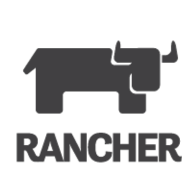

Rancher Labs and Amazon EKS compete in the Kubernetes and container orchestration category. Rancher Labs has the upper hand due to its open-source flexibility, active community support, and comprehensive UI for those unfamiliar with Kubernetes.
Features: Rancher Labs offers open-source flexibility, active community support, and a comprehensive user interface making it user-friendly. It integrates with persistent storage and supports East-West traffic management. Amazon EKS is known for its seamless integration with AWS services, scalability, and automation features like Fargate that simplify infrastructure management without requiring cluster expertise.
Room for Improvement: Rancher Labs can enhance stability, improve integration with more tools, including its own products, and refine its upgrading process. It also needs better security features and multicloud support. Amazon EKS could improve in terms of stability, ease of use, and cost-effectiveness. Enhancements in its dashboard interface, as well as improvements in security and support for on-premises setups, would be beneficial.
Ease of Deployment and Customer Service: Rancher Labs supports various environments including hybrid and on-premises setups, showcasing flexibility and a supportive community. Amazon EKS operates in the public cloud environment and provides robust documentation and responsive technical support. Both platforms offer satisfactory deployment options, but Rancher Labs is more versatile.
Pricing and ROI: Rancher Labs, being open-source, offers significant cost savings and excellent ROI for companies utilizing community support, though paid support can be expensive. Amazon EKS is considered pricey compared to competitors, with charges based on usage and node numbers, offering a fair ROI through its comprehensive AWS integration.
Initially, not having them resulted in an unoptimized solution. However, with these tools in place, we witnessed a reduction of costs by approximately a third—if it was $100 beforehand, we brought costs down to $25.
We have cost explorer available, and a bill forecast based on usage allows us to determine whether resources are underutilized or overutilized.
It's a fast deployment, with very good documentation, and it's really helpful.
We didn't need to manage etcd and those control management tools; it's totally handled from the AWS side, making it very beneficial.
I believe there should be a recovery solution available for at least a few hours so that we might bring it back.
They will set up a call, guide us, or provide solutions regarding integration with AWS or Amazon EKS.
The ability to scale based on requirements by deploying additional containers is a strong point for Kubernetes.
This allows us to scale our applications or APIs as needed, offering reliability through the automation of scaling processes.
If any node is not ready, the cluster autoscaler ensures that it is removed from the AWS auto-scaling group and replaces it with a new node in the cluster.
There are multiple availability zones in the regions, meaning no single point of failure.
The control plane is quite stable in Amazon EKS, and I find it to be 100% available.
We haven't faced any challenges, and it consistently delivers on its committed SLA.
Simplifying these will enable more people, not just those with strong foundational knowledge, to work effectively with these services.
Amazon EKS can be improved by having the maintenance of Kubernetes versions managed better, as everything is handled by the Kubernetes team and possibly a separate team at AWS.
Adding logging would be a valuable improvement.
The EKS service itself is free, but you will incur costs for the VMs used as nodes in that cluster.
If you want to monitor costs effectively, applying separate tools and acting accordingly in advance is essential.
I appreciate the overall pricing model of AWS, where you pay based on usage, which allows for a clear understanding of costs associated with services.
The most beneficial aspect of Amazon EKS is that it helps manage the Kubernetes master node, so I don't need to maintain the master node, including tasks like upgrading.
The main benefits that I received from using Amazon EKS are that it is a managed cluster and offers simplicity.
By default, if you just install Amazon EKS, you can deploy your application, but to have it enterprise-ready, you have to configure a number of other things that will boost productivity.
| Product | Market Share (%) |
|---|---|
| Amazon EKS | 12.8% |
| Rancher Labs | 5.3% |
| Other | 81.9% |


| Company Size | Count |
|---|---|
| Small Business | 32 |
| Midsize Enterprise | 23 |
| Large Enterprise | 46 |
| Company Size | Count |
|---|---|
| Small Business | 6 |
| Midsize Enterprise | 2 |
| Large Enterprise | 6 |
Amazon Elastic Kubernetes Service (Amazon EKS) is a fully managed Kubernetes service. Customers such as Intel, Snap, Intuit, GoDaddy, and Autodesk trust EKS to run their most sensitive and mission critical applications because of its security, reliability, and scalability.
EKS is the best place to run Kubernetes for several reasons. First, you can choose to run your EKS clusters using AWS Fargate, which is serverless compute for containers. Fargate removes the need to provision and manage servers, lets you specify and pay for resources per application, and improves security through application isolation by design. Second, EKS is deeply integrated with services such as Amazon CloudWatch, Auto Scaling Groups, AWS Identity and Access Management (IAM), and Amazon Virtual Private Cloud (VPC), providing you a seamless experience to monitor, scale, and load-balance your applications. Third, EKS integrates with AWS App Mesh and provides a Kubernetes native experience to consume service mesh features and bring rich observability, traffic controls and security features to applications. Additionally, EKS provides a scalable and highly-available control plane that runs across multiple availability zones to eliminate a single point of failure.
EKS runs upstream Kubernetes and is certified Kubernetes conformant so you can leverage all benefits of open source tooling from the community. You can also easily migrate any standard Kubernetes application to EKS without needing to refactor your code.
Rancher Labs build innovative, open source software that makes it easy to deploy and manage containers in production on any infrastructure. We enable organizations to accelerate all aspects of their software development pipeline, from writing and testing code to running complex microservices-based applications.
Rancher, our flagship container management platform, allows users to easily manage all aspects of running containers in development and production environments, on any infrastructure. With well over four million downloads, Rancher has quickly become the tools of choice for teams serious about running containers in production. This includes large enterprises such as Sony, IBM, Tyco, Align Technologies and more.
We monitor all Container Management reviews to prevent fraudulent reviews and keep review quality high. We do not post reviews by company employees or direct competitors. We validate each review for authenticity via cross-reference with LinkedIn, and personal follow-up with the reviewer when necessary.